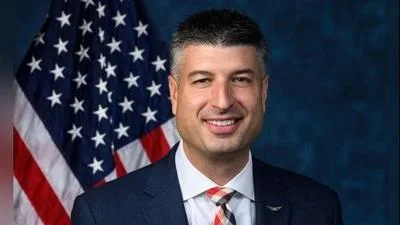Kevin M. Guskiewicz President at Michigan State University | Official website
Kevin M. Guskiewicz President at Michigan State University | Official website
The avian influenza outbreak, which began over two years ago, continues to affect various species across the United States, including recent detections in cattle, cats, and large commercial poultry flocks. In Michigan, Kimberly Dodd, director of the Michigan State University Veterinary Diagnostic Laboratory (MSU VDL), plays a crucial role in addressing this issue. The MSU VDL has collaborated with state and federal agencies since February 2022 to manage the highly pathogenic avian influenza (HPAI) outbreak.
Dodd explains that avian influenza is caused by influenza A viruses circulating among wild birds without causing severe disease. However, domestic birds interacting with these wild populations are at risk of infection. Since the outbreak's onset in 2022, nearly 86 million domestic birds have been affected. HPAI has been detected in over 1,100 commercial and backyard flocks.
"The HPAI strain currently circulating is unique because it has severely affected wild birds," says Dodd. Waterfowl and other bird species like raptors and scavengers have shown signs of illness or died from the virus. Although mortality rates have decreased recently, the virus persists in wild bird populations.
Additionally, this strain has been found in several mammals such as big cats, bears, coyotes, and others through consumption or close contact with infected birds. Notably, dairy cattle in several states including Michigan have also contracted the virus. "The disease in cattle has been associated with herd-level decreases in milk production," notes Dodd.
Finding avian influenza in livestock is significant as it represents a new transmission vector from birds to mammals. Experts are working to understand how transmission occurs within herds.
Despite these developments, "the current risk to the public remains low," according to the U.S. Centers for Disease Control and Prevention. The Food and Drug Administration assures that "the commercial milk supply remains safe" due to stringent health requirements and pasteurization processes.
Producers noticing signs of illness should consult their veterinarians for guidance on testing procedures available through MSU VDL's resources. Any suspicions of HPAI presence should be reported immediately to relevant authorities.





 Alerts Sign-up
Alerts Sign-up